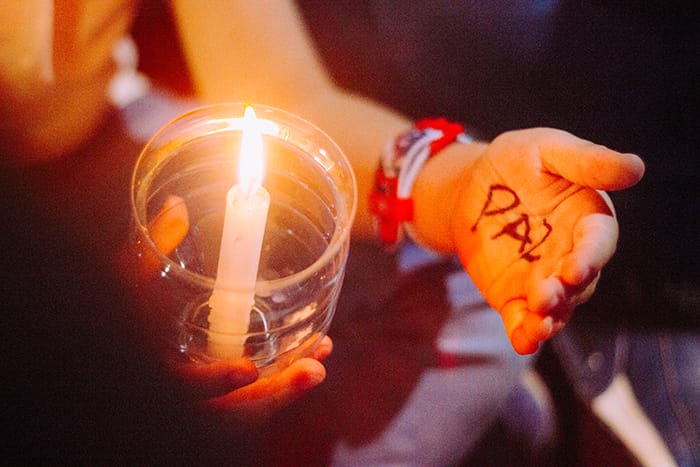“Blessed are the peacemakers, for they will be called children of God…” (Matthew 5:9)
Jesus brought peace among us by his birth. His life was a counterculture of the wars and power struggles in his lifetime, affecting mostly the tranquility of people’s lives.
What is peace?
We speak of peace because there are many conflicts, which are often dehumanizing—and we need that peace. Jesus speaks of peace, the value and relevance of it all. In bringing peace, Jesus performs the universal language of love, common among many faith traditions. And he continues to say, blessed are the peacemakers!
But where is peace? when wars never stop… when deaths continue to rise… when many people suffer…
Peacemakers are us! Not the world leaders… not even a group of nations… Jesus’ words in the beatitudes are not kind words, but an admonition to the failures of leaders and institutions of not pursuing peace… Peace cannot be coated by the security of a few at the expense of the suffering of many. Rather, peace is integrally promoting the common good—where there is no violence, hatred and even deaths…
Likewise, peace must not be dependent on political leaders, or else peace cannot be achieved. Peace is a value for all and must be sought by all.
Faith Communities Pursuing Peace
In these times of global crisis impacted by wars, and without peace, we have reached to the point where these conflicts affected the economy and the lives of our people. As churches and communities of faith, we are challenged in an ecumenical way to be animators of peace in the world. This a meaningful response in our celebration of the world week of prayer for Christian unity.
Peace is a hallmark of faith, beyond many signs, true faith seeks authentic peace. It is illogical for some churches to endorse the Russian-Ukrainian war, or any local wars—that only made everyone suffer. Ironically, some churches from across the spectrum of violence are benefitting from these wars. The pursuit of peace is indeed the mark of any faith, as Pope Francis exhorts “we must promote actions that enhance peace and put an end to the conflicts and wars that continue to spawn poverty and death.” (56th World Day of Peace, 1 January 2023)
Faith Communities Seeking Justice
Peace must seek justice, one that constructs the betterment for the common good—ending all the obstructions to peace: oppression, poverty and political greed. The recent document re-affirms the social dimension of the Christian approach to justice: “The Bible tells us that we cannot separate our relationship with Christ from our attitude towards all God’s people, particularly those considered ‘the least of these’ (Mt 25:40). Our commitment to each other requires us to engage in mishpat, the Hebrew word for restorative justice, advocating for those whose voices have not been heard, dismantling structures that create and sustain injustice, and building others that promote and ensure everyone receives fair treatment and the rights that are due to them.” (Week of Prayer for Christian Unity, Do Good, Seek Justice, Pontifical Council for Promoting Christian Unity and Commission on Faith and Order of the World Council of Churches, 2023) Our prayer for unity is rooted on the real experience of the struggles of humanity, with all the dehumanizing impacts, facing hunger and impoverishment. As we pray then, we embrace the peace that does justice.
Praying for Peace
“[…] for they will be called children of God[…]”, as God sends the Prince of Peace to us, churches must unite to bring the experience of peace in the context of ending the suffering of humanity—without war and injustice. Let this be our prayer: “Compassionate God, help us repair the harm that we have inflicted upon each other and the divisions we have created among your people. Just as Christ Jesus breathed the Holy Spirit onto the disciples to birth the community of the new creation, send your grace to heal our divisions and gift us with the unity for which Jesus prayed.” (Week of Prayer for Christian Unity, Do Good, Seek Justice, 2023)
Jaazeal Jakosalem OAR


